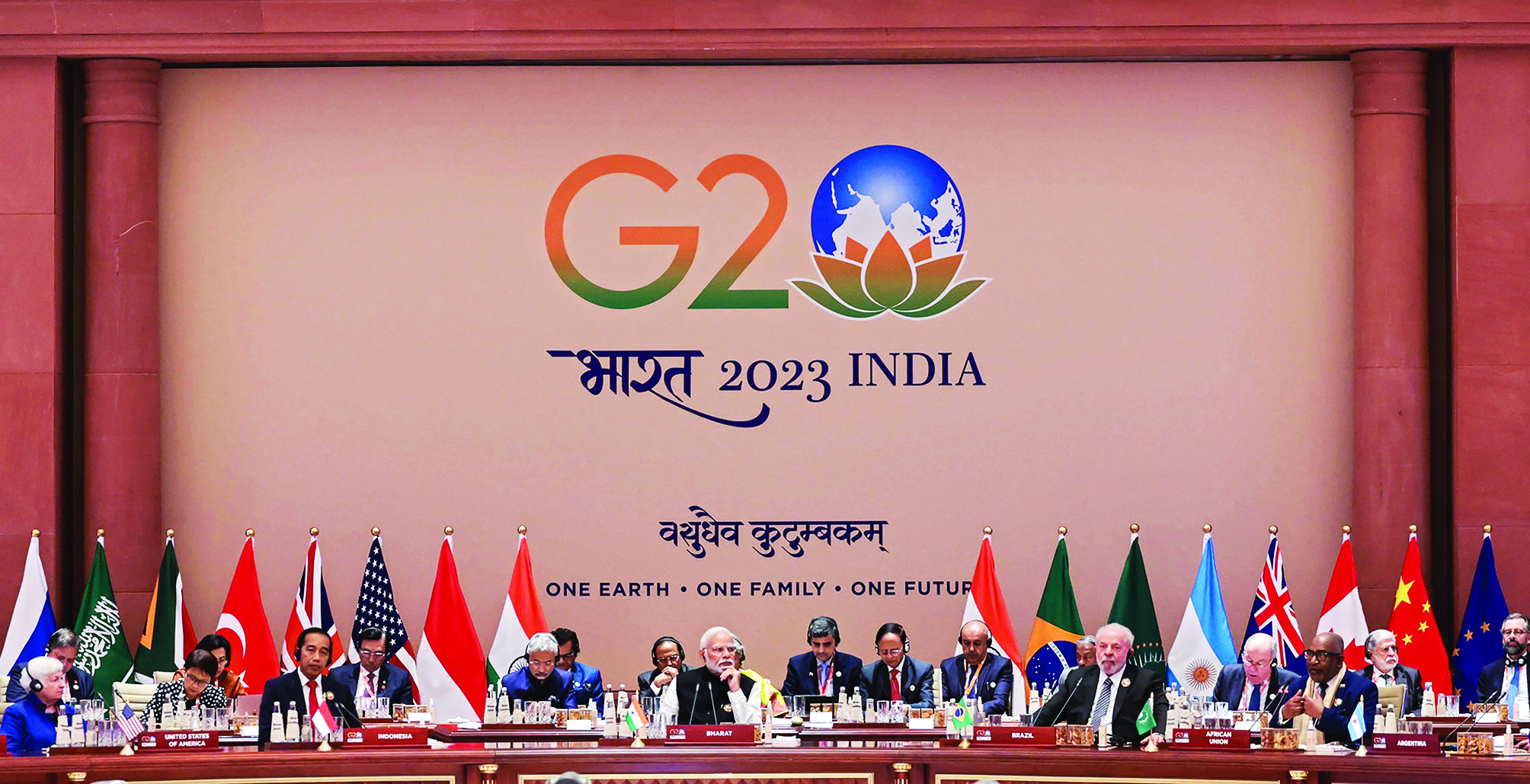G20 leaders call for achieving universal health coverage

New Delhi: With a focus on ensuring a quality healthcare system, the G20 leaders have resolved to build more resilient, equitable, sustainable and inclusive health systems for achieving universal health coverage, enhancing pandemic preparedness and strengthening existing infectious diseases surveillance systems.
In a joint declaration, the global leaders stressed on strengthening primary healthcare, health workforce and essential health services to better-than-pre-pandemic levels, ideally within the next two to three years.
Besides focusing on epidemics such as tuberculosis and AIDS, the grouping of emerging and developed economies recognised the importance of research on long Covid-19.
The G20 leaders committed to improve access to medical countermeasures and facilitate more supplies and production capacities in developing countries to prepare better for future health emergencies.
The G20 New Delhi Leaders’ Declaration highlighted the need to promote the One Health-based approach driven by the quadripartite One Health Joint Plan of Action (2022-2026) and enhance the resilience of health systems.
It also stressed the need to support development of climate-resilient and low-carbon health systems in collaboration with multilateral development bank (MDBs), and support the work of the WHO-led Alliance for Transformative Action on Climate and Health (ATACH).
It also stressed on implementing and prioritising tackling antimicrobial resistance (AMR) following the ‘One Health’ approach, including through research and development, infection prevention and control, as well as antimicrobial stewardship efforts within respective national action plans through AMR and antimicrobial consumption surveillance.
The New Delhi declaration also called for facilitating equitable access to safe, effective, quality-assured, and affordable vaccines, therapeutics, diagnostics, and other medical countermeasures, especially in low-and middle-income countries and least developed countries. The declaration recognised the potential role of evidence-based traditional and complementary medicine in health, and take note of international efforts in this direction, including WHO’s global and collaborating centres, and clinical trial registries.
While highlighting the public health dimension of the world drug problem, the leaders called for strong international counter-narcotics cooperation, free of unnecessary restrictions, including information sharing and capacity building to disrupt production and proliferation of illicit drugs, including synthetic drugs, and precursor chemicals at their origin, in transit and at destination points.



